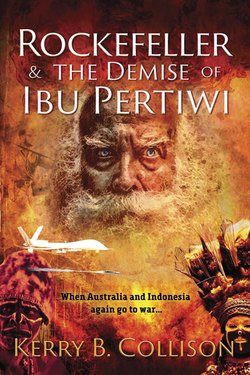Читать книгу Rockefeller & the Demise of Ibu Pertiwi - Kerry B Collison - Страница 14
На сайте Литреса книга снята с продажи.
ОглавлениеWest Irian
Indonesia’s General Murtopo had warned the Papuans that if they voted against Indonesia “their accursed tongues will be cut out and their evil mouths wrenched open”.
As the commencement of polling approached, elements of Jakarta’s ruthless and highly-trained Police Mobile Brigade BRIMOB and the army’s KOPASSUS Special Forces swept across the territory, to ensure the desired outcome. Jakarta’s strategy cut off resistance groups from supporting the village populations, thereby destroying their food supply. Thousands of Papuans were killed as the occupying army inaugurated a system of relocating smaller village communities into designated and more manageable, but agriculturally-poor areas. Deprived of their traditional food supplies many perished. As the military round-up of Free Papua activists continued, intimidated villagers quickly fell into line.
However, strong pockets of resistance remained in the more isolated, mountainous regions. In April, rebellions erupted in the Western Central Highlands, when one hundred armed Papuan policemen joined the rebels. The Indonesian military’s response was brutal. When a gathering of demonstrators near Jayapura proclaimed a “National Republic of West Papua” the group was dispersed by machine-gun fire leaving many dead, and others to be imprisoned. Unconstrained, a platoon of Indonesian soldiers forced their way into the United Nation’s post and arrested Marshal Williams, the UNRWI’s black American Chief administrative officer, mistaking him for a Papuan.
Jakarta despatched nine ground-force task units to Irian Barat.
Uprisings continued throughout the territory; air fields were sabotaged to prevent Indonesian troop landings, which precipitated the poorly-conceived aerial drop of four battalions of Red Beret paratroopers from Hercules aircraft. Most of the soldiers drowned in Lake Paniai when the pilot missed the target, and those who survived were killed by Papuan Resistance forces.
* * * *
On July 14, 1969, the Act of Free Choice finally began as the sound of democracy faded.
An assembly of only one thousand Papuan members, selected to represent the entire Papuan population, had spent several weeks before the day under guard by the authorities, and isolated from the rest of the community. Most assembly members were either threatened or bribed by Jakarta’s presiding general, choosing specific individuals who had rehearsed pro-Indonesian speeches to speak at the assembly. These representatives were to create a collective consensus to remain with Indonesia and, in turn, each stood and made similar statements proclaiming they recognized the Indonesian Constitution.
When the Act’s implementation was complete, Jakarta announced all the Papuans had elected to remain with Indonesia. Tomas Karma was one of the thousand delegates to the ‘Act of Free Choice’. He would become a member of Suharto’s political wing, Golkar and serve as a member of the West Papuan provincial parliament.
The sham referendum was ratified by the UN General Assembly paving the way for the betrayal of the people of West New Guinea which then became absolute, and West Irian became Indonesia’s twenty-sixth province.
The Indonesian military moved quickly to establish a permanent presence to control the indigenous population, now agitated by the influx of Javanese immigrants brought in under the government’s transmigration program, to dilute the native presence.
The Free Papua Movement (OPM) rejected the referendum result, advocating unification with neighbouring Papua New Guinea (PNG), and commenced an ongoing low-level insurgency operating from sanctuaries along the common border, under the watchful eyes of Australian Special Forces.
Fifty years of repression, reprisals and genocidal behaviour would pass before the flawed plebiscite would be revisited by the United Nations, dragging Indonesia and Australia once again, to the brink of war.
* * * *
